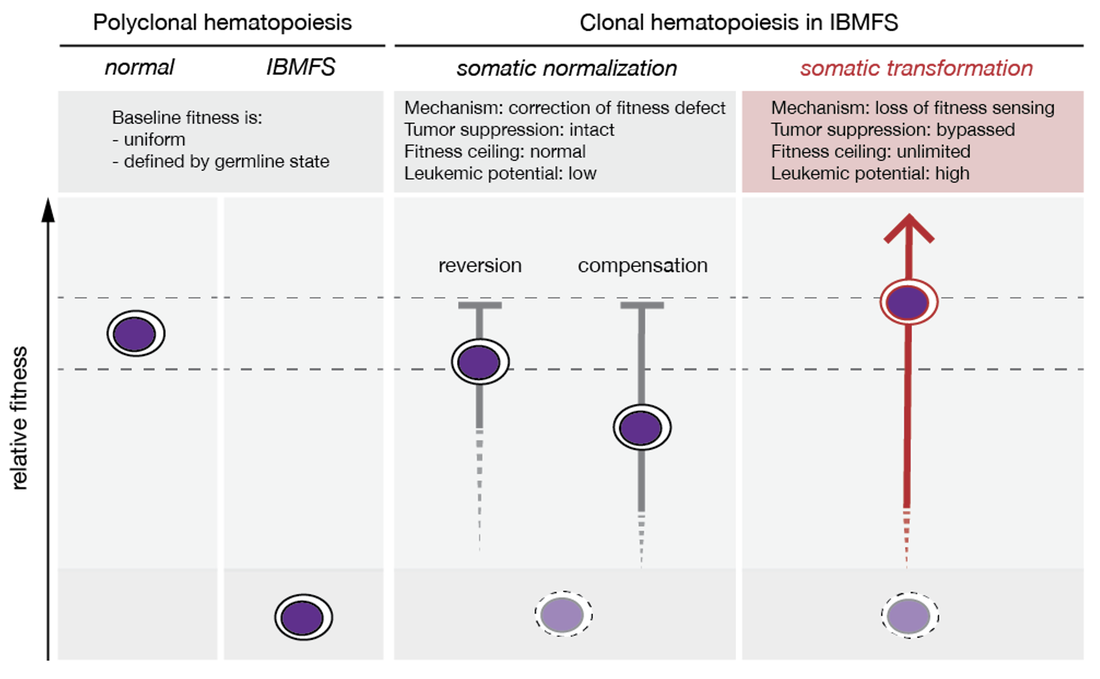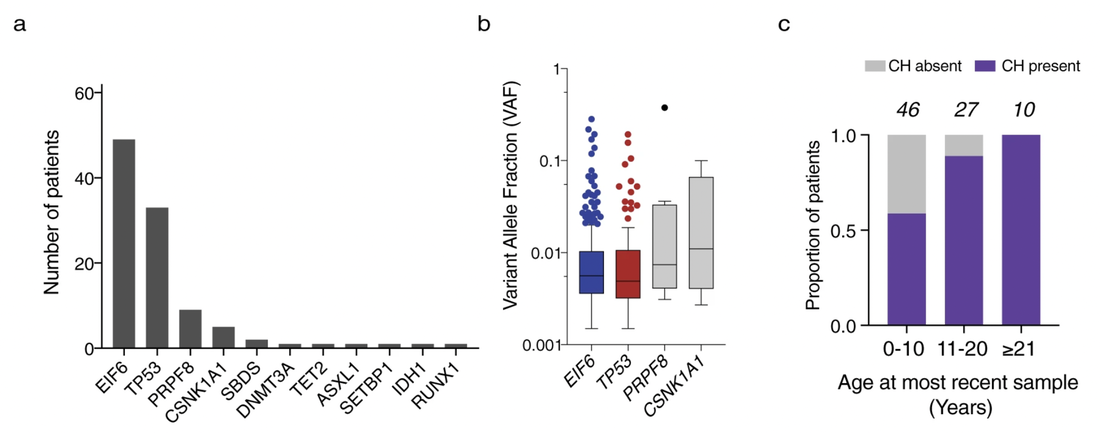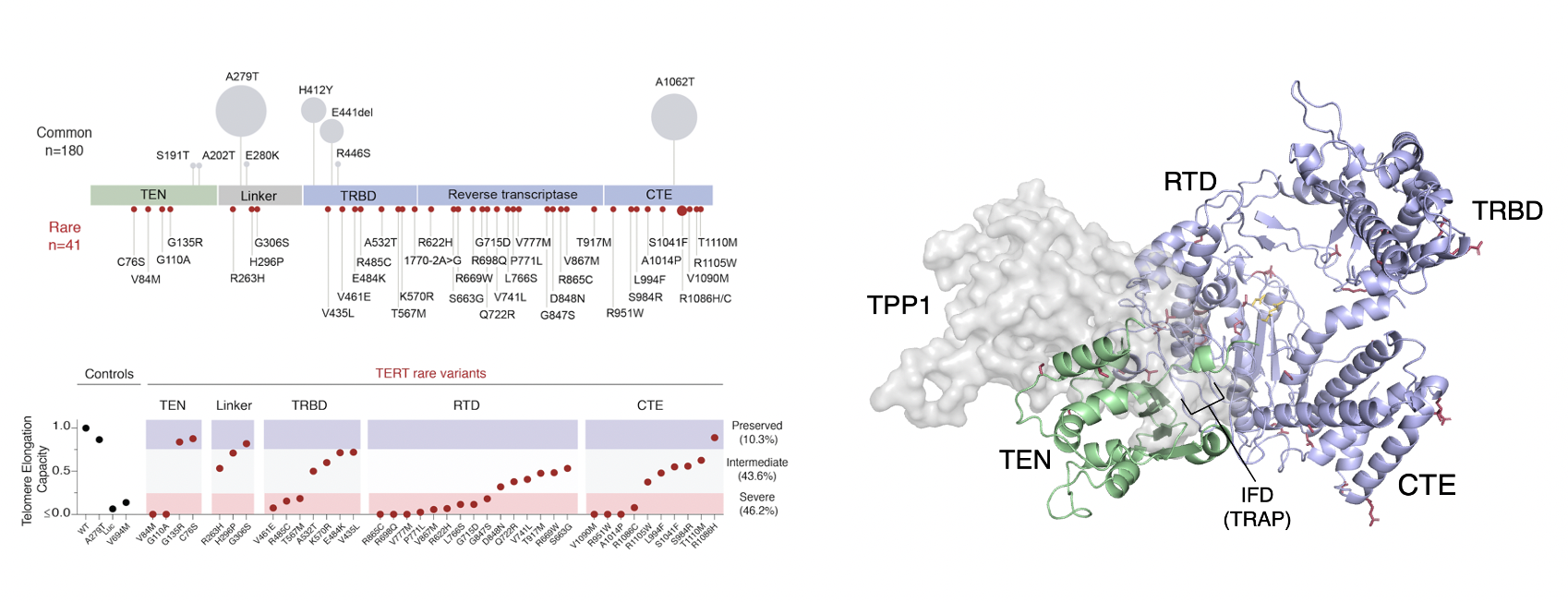Understanding Bone Marrow Failure and MDS/AML Predisposition Syndromes
Inherited genetic alterations can predispose to development of MDS and AML. Some patients are recognized as children to have typical clinical syndromes, while others present as adults with MDS/AML as their first manifestation of disease. We study patients with myeloid malignancies across all ages to understand the scope and clinical consequences of leukemias that arise from germline predisposition syndromes. We also study patients with particular syndromes, including a primary focus on Shwachman-Diamond Syndrome (in collaboration with the Shwachman-Diamond Syndrome Registry) and telomere biology disorders, with the goal of improving patient care and clinical outcomes through an enhanced mechanistic understanding of leukemogenesis. Take a look at our review on Clonal hematopoiesis in the inherited bone marrow failure syndromes.
Shwachman-Diamond syndrome
SDS is an inherited defect in ribosome maturation, most often due to germline SBDS gene mutations, that results in an HSC fitness defect and manifests clinically as marrow failure and predisposition to developing MDS/AML. We recently discovered that the HSC fitness constraint in SDS drives selection of somatic clones by (1) a compensatory pathway with limited leukemic potential, mediated predominantly by EIF6 inactivation and (2) a maladaptive pathway with enhanced leukemic potential, driven by TP53 inactivation. Read more about this study here.
SDS is an inherited defect in ribosome maturation, most often due to germline SBDS gene mutations, that results in an HSC fitness defect and manifests clinically as marrow failure and predisposition to developing MDS/AML. We recently discovered that the HSC fitness constraint in SDS drives selection of somatic clones by (1) a compensatory pathway with limited leukemic potential, mediated predominantly by EIF6 inactivation and (2) a maladaptive pathway with enhanced leukemic potential, driven by TP53 inactivation. Read more about this study here.
Telomere biology disorders
Germline pathogenic TERT variants are associated with short telomeres and an increased risk of developing myelodysplastic syndrome (MDS) among patients with a telomere biology disorder. We found that TERT rare variants are present in 2.7% of MDS patients and associated with increased non-relapse mortality after allogeneic transplantation. Using a cell-based assay, TERT rare variants had impaired telomere elongation capacity across all structural domains. Read more about this study here.
Germline pathogenic TERT variants are associated with short telomeres and an increased risk of developing myelodysplastic syndrome (MDS) among patients with a telomere biology disorder. We found that TERT rare variants are present in 2.7% of MDS patients and associated with increased non-relapse mortality after allogeneic transplantation. Using a cell-based assay, TERT rare variants had impaired telomere elongation capacity across all structural domains. Read more about this study here.




